Get trained do more
Top up your knowledge and gain the confidence to do more afloat with the RYA's navigation and seamanship theory courses.
There’s no doubt that the more time you spend on the water, the more confident and experienced you’ll become. Once you’ve reached a certain level of competence, it’s easy to rely on gaining knowledge-by-doing. However, it’s important to be aware that certain gaps may be better filled by training, rather than experience.
Both time spent on the water and practical training are geared towards hands-on boat handling, putting theory into practice during short passages. While this is a great way to learn, it doesn’t necessarily offer an understanding of unexpected situations that can arise on the water, even during short passages.
The RYA shorebased navigation and theory courses provide a greater depth of knowledge in a range of subjects. With options for online learning, as well as in the classroom, it’s never been easier to boost your skillset.
Understanding charts & publications
Whilst most of us have a go-to destinations to visit time and time again, you can’t beat the thrill of exploring somewhere new.
But exploring new areas requires planning; how far away is my destination and how long will it take to get there? What hazards are there on route? What do certain chart symbols mean?
Anybody planning a passage needs to know where, and how to find the answers to these questions. As well as understanding what impact this will have when out on the water.
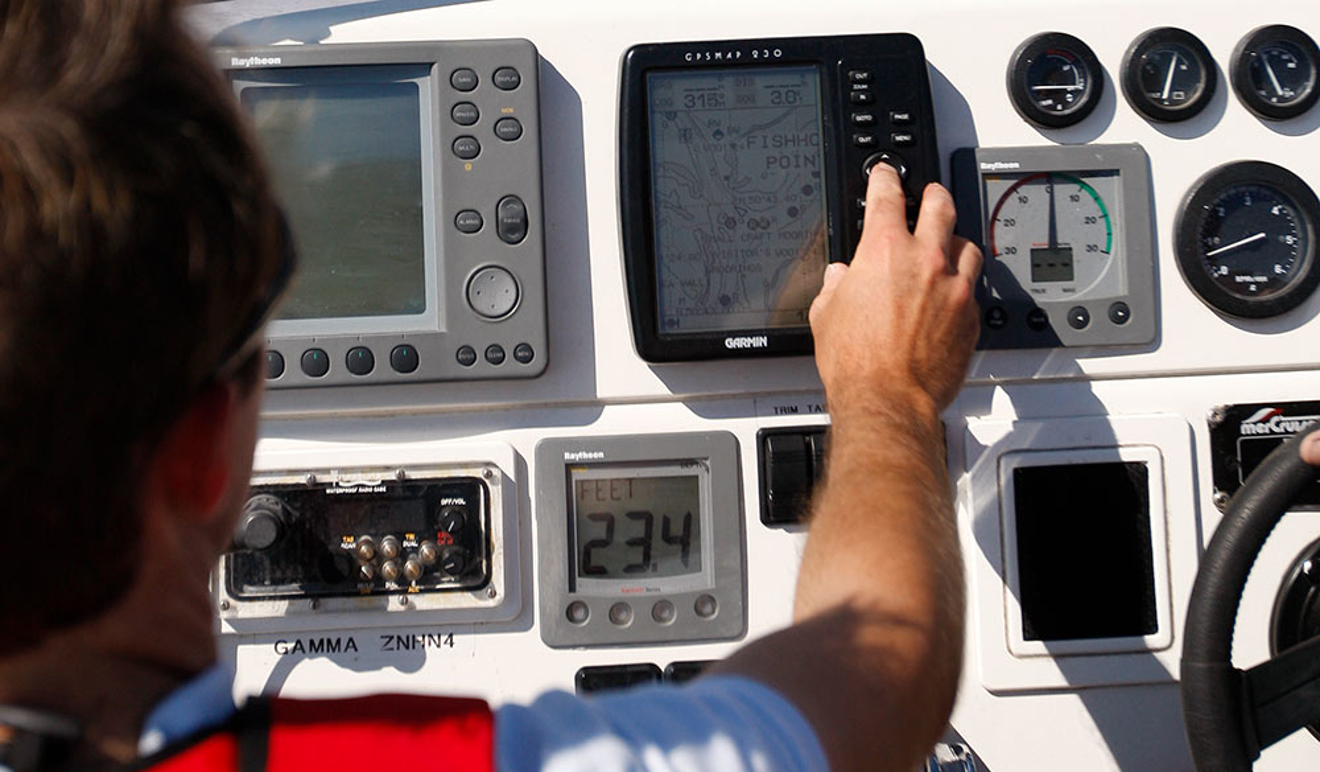
Pilotage
Often, the most rewarding places to explore are those that involve close-quarters navigation, the estuaries, beaches, harbours, and little nooks and crannies in rivers. Unless you have local knowledge, the only safe way to explore these hidden gems is through a chart or pilotage information.
Learning pilotage techniques like buoy hopping, leading marks, and more, can help to make the trickier stages of a journey far less stressful.
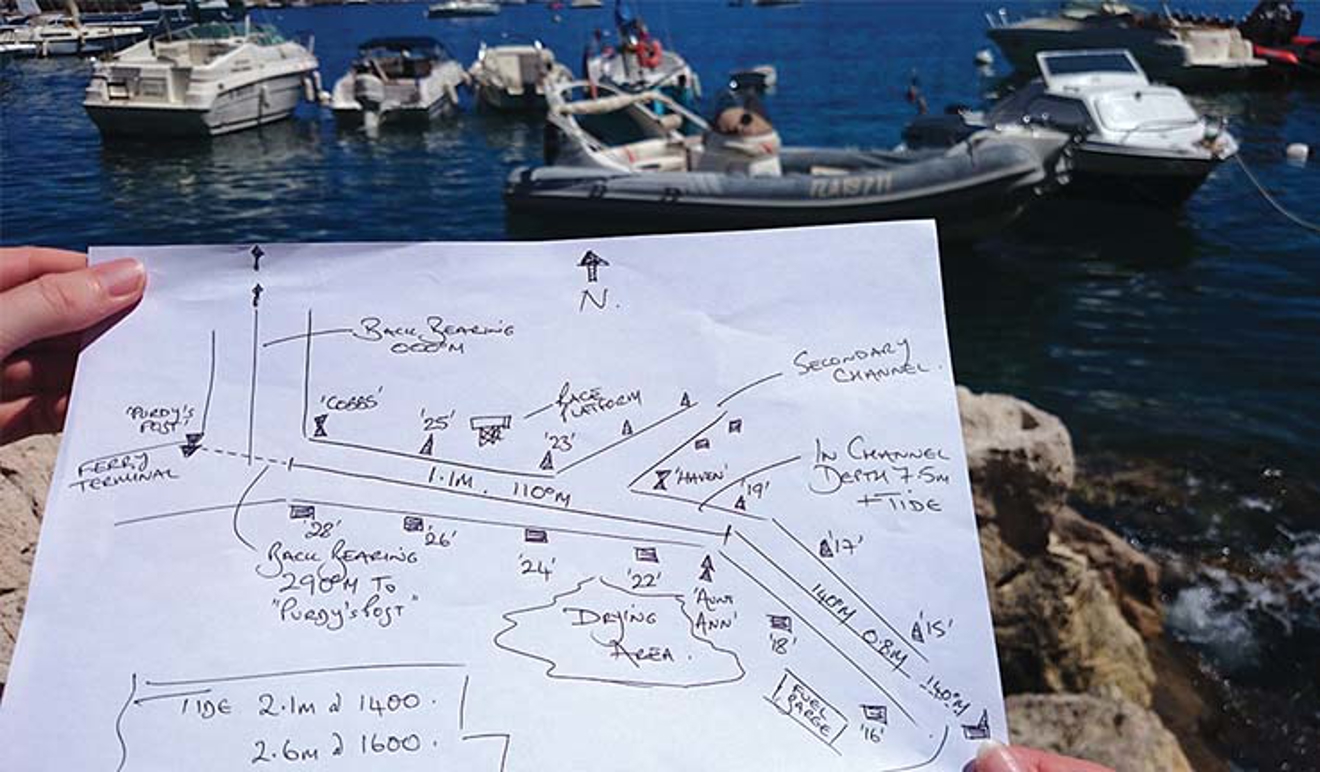
Position fixing
Knowing where you are is key to ensuring you’re safe to continue on a current or new course, especially when travelling at high speed.
Techniques for establishing or monitoring your position work best when two separate sources of information are used, enabling one to verify the other. A range of electronic and traditional techniques allows you to double your navigation.
Judging how accurate, reliable, and safe your position is, is a very useful skill to develop for navigation. In open water an approximate position monitored hourly may suffice. However, in confined, shallow, or hazardous waters a greater level of accuracy is often required with continuous monitoring of position.
There are a diverse number of techniques available, and it is unlikely that they can be taught from scratch on a single trip. A shorebased course teaches these techniques so that they can be used at the right time.
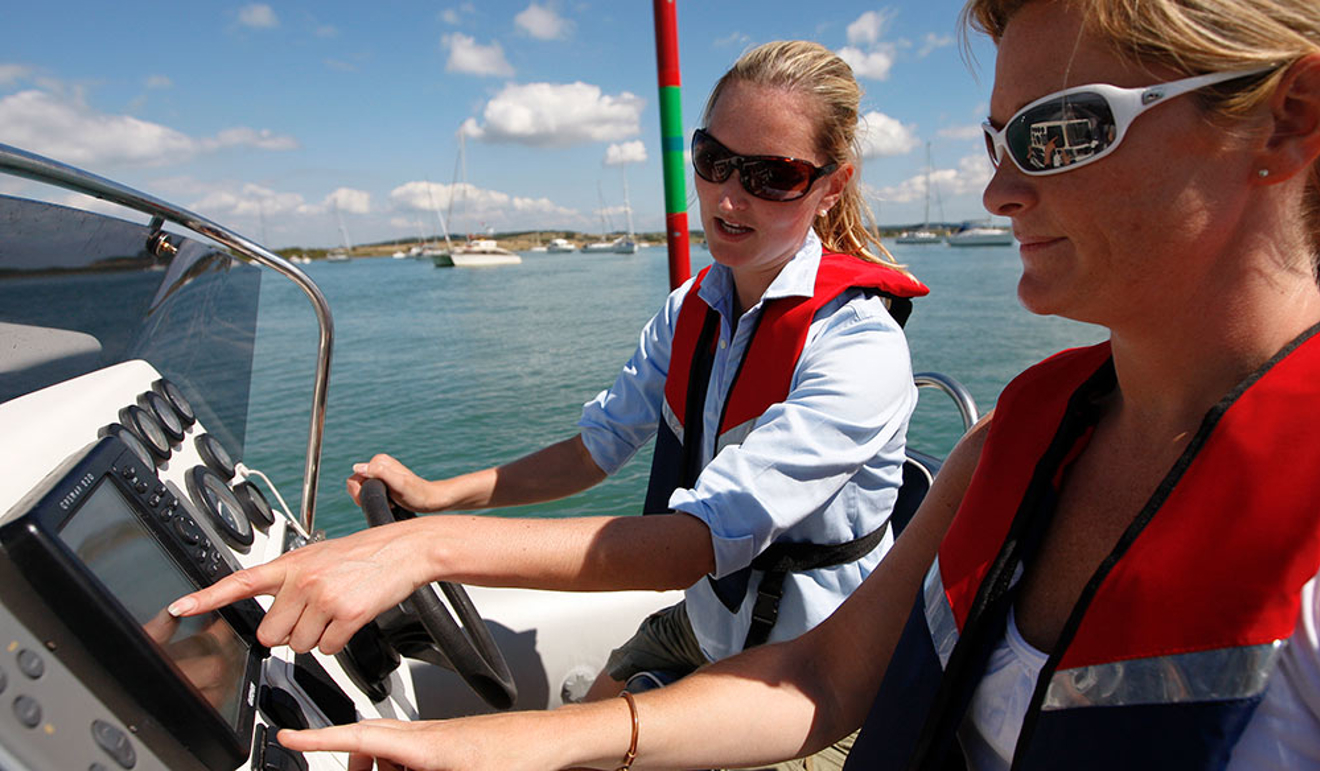
Rules of the road
On a practical course, the rules of the road are generally taught, as and when they arise. But with such a vast number of nuances that affect decision making in different situations, are you properly prepared?
Does your position as a stand-on vessel change if you spot a day-shape on the other vessel? What about if you’re both in a narrow channel? Is there a local byelaw that affects your course of action? How will a change of course affect other nearby vessels?
Having the knowledge to perceive a potential collision situation, comprehend its significance and project its future status is essential for any skipper.
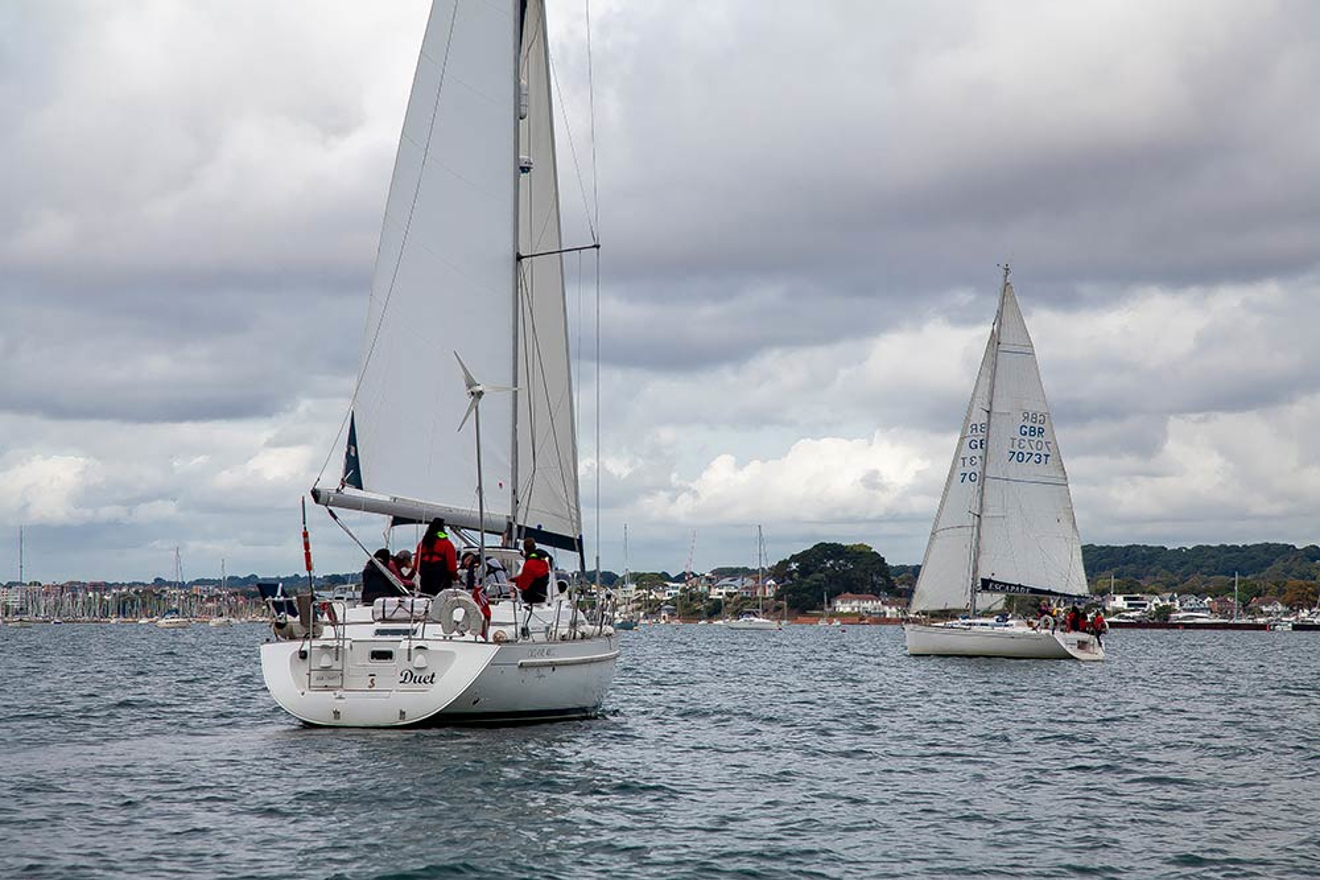
Meteorology
As far as passage making is concerned, even a basic understanding of weather can mean the difference between a good and a bad decision.
The RYA shorebased navigation courses cover everything from obtaining different types of weather forecast, to the terminology used. You’ll also learn about real time observations and how to make decisions based on your interpretations.
Get trained
RYA Essential Navigation and Seamanship is great for those who have completed their RYA Powerboat Level 2, Start Motor Cruising, or Helmsman course.
Available online (approximately 6 hours) and in the classroom (16 hours), the course is designed to prepare you for the water. Topics include:
- Charts and publications
- Engine checks
- Tidal awareness
- Pilotage
- Anchoring
- Passage planning
- Safety
- Buoyage
- Visual and electronic navigation
- Rules of the road
- Weather forecasts
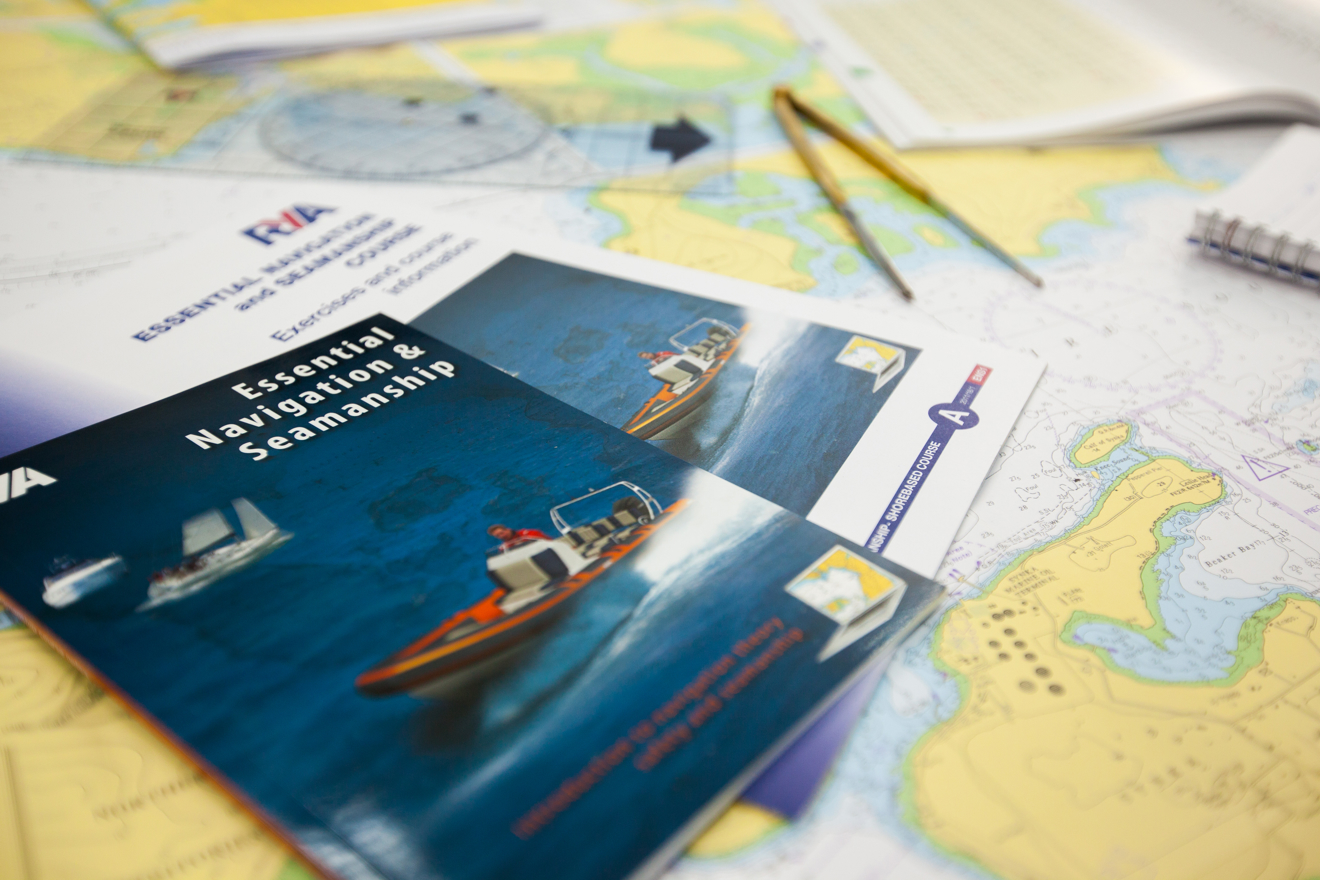
RYA Day Skipper Theory is a perfect precursor to the RYA Intermediate Powerboat or RYA Day Skipper Motor courses. This is a must for skippers thinking about cruising further afield or taking their boat on holiday.
Delivered in the classroom or by distance learning, this course is taught over 40 hours. Topics include:
- The basics of seamanship
- Chartwork and position fixing
- Weather forecasting, tides, and meteorology
- Collision regulations
- Construction, parts and equipment of a cruising boat
- Essentials of coastal navigation and pilotage
- Electronic charts
- Plotting a course to steer
- Emergency and safety procedures
Discover more about the RYA’s training courses or find a centre near you.
